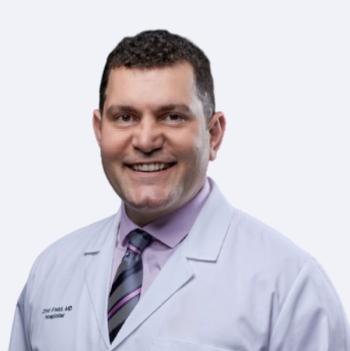
Consumer genomics: Next direction or next distraction?
Patients are more interested in knowing their health risks than ever before.
While precision medicine is revolutionary, it’s happening now. It signals a significant shift from the traditional one-size-fits-all and trial-by-error approach, to personalized medicine with genetic testing and treatments tailored to individuals.
I’ve noticed in my own patient base a significant mood shift over the last several years. Patients are more interested in knowing their health risks than ever before. An example would be the recent FDA approval of the new genetic risk panel from 23andMe, a direct-to-consumer genetic testing company. This is the first step in what will become patient access to ordering their own exome and full genome testing. It spotlights the murkiness of what happens once the results are in.
Physicians remain ill-equipped to deal with such massive amounts of patient and clinical data. There remain many obstacles to wide-spread adoption of genomics at the point-of-care.
Don’t get me wrong: I am greatly in favor of patient empowerment, and I believe that consumer-driven healthcare will ultimately be good for all. However, we need to balance patient and consumer demand with evidence and science-based policy. For healthcare to be successful in improving outcomes for patients, we’ll have to strike a careful balance between the old way of doing things, and the new.
An old idea in health IT is data must flow between systems in a meaningful way to be impactful. This becomes more relevant with the emergence of this new type of data. Standards of interoperable use of genomic data is only the first step. The ability for electronic health record systems to analyze such data is a necessity, but there is still much to be done. We can only create new opportunities in the field of information technology when we meaningfully display appropriate information where and when it is needed.
As diagnostics move away from individual tests and panels to full exome or even full genome, providers will need to understand and deal with the huge number of incidental variants of unknown significance. With this new amount of data, cloud-based repositories of genomic data will be essential. Continual updates of these data sets, along with tools to notify providers and patients will be crucial.
Interpreting genetic data creates another challenge: Interpretation of complicated and often ambiguous reports will require new ways of presenting and visualizing data. Traditionally, physicians have relied on highly trained genetic counselors to help them navigate complex reports, suggest follow-up studies and assist in communication to patients.
Unfortunately, there is a shortage of genetic counselors, and it is increasing at a potentially alarming rate. The burden on clinicians is increasing, but there is an opportunity to create automated and virtual genetic counseling to offset this challenge.
Today, the science of genomics occurs in labs, research facilities, pharmaceutical companies and clinical trial programs. But it’s not accessible in actionable, meaningful clinical terms, nor is it structured and harmonized for the patient. These stakeholders are coming together to help realize the promise of genomic knowledge. Precision medicine will have the greatest impact when it’s delivered at the point of care. It is not becoming the next direction-it is the direction, now.
Joel Diamond, MD, is chief executive officer of 2bPrecise, an Allscripts subsidiary that designs genomic data technology. Send your comments to [email protected].
Newsletter
Stay informed and empowered with Medical Economics enewsletter, delivering expert insights, financial strategies, practice management tips and technology trends — tailored for today’s physicians.






